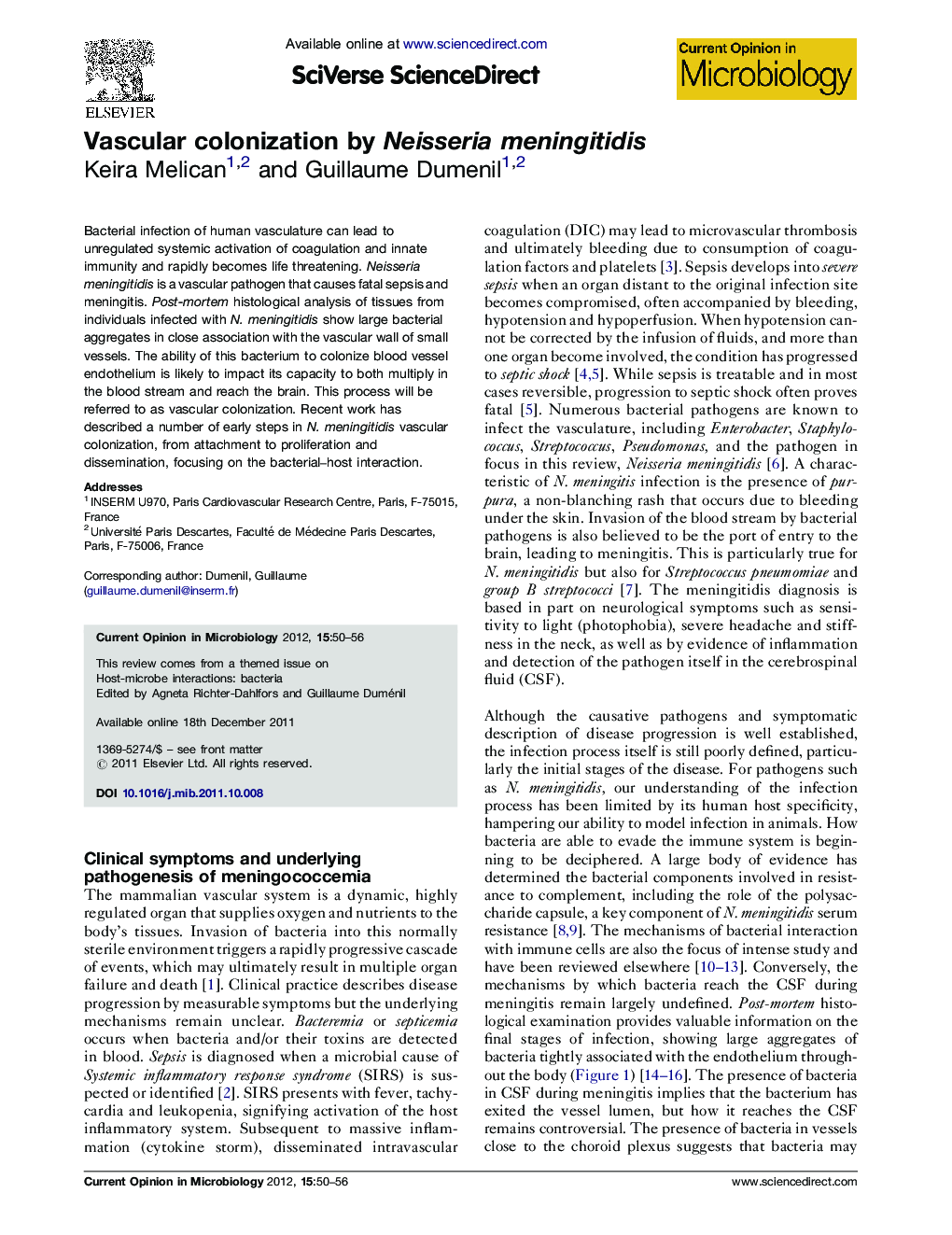| Article ID | Journal | Published Year | Pages | File Type |
|---|---|---|---|---|
| 3399190 | Current Opinion in Microbiology | 2012 | 7 Pages |
Bacterial infection of human vasculature can lead to unregulated systemic activation of coagulation and innate immunity and rapidly becomes life threatening. Neisseria meningitidis is a vascular pathogen that causes fatal sepsis and meningitis. Post-mortem histological analysis of tissues from individuals infected with N. meningitidis show large bacterial aggregates in close association with the vascular wall of small vessels. The ability of this bacterium to colonize blood vessel endothelium is likely to impact its capacity to both multiply in the blood stream and reach the brain. This process will be referred to as vascular colonization. Recent work has described a number of early steps in N. meningitidis vascular colonization, from attachment to proliferation and dissemination, focusing on the bacterial–host interaction.
► Infection of the vasculature with Neisseria meningitidis is a multistage process. ► Bacterial adhesion to the endothelium is influenced by shear stress. ► Bacterial-induced cellular projections enhance bacterial resistance to shear stress. ► Recruitment of junctional proteins to cortical plaques may facilitate dissemination. ► Bacterial pili modification following cell adhesion mediates bacterial detachment.
